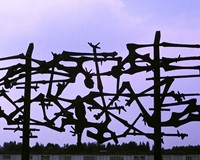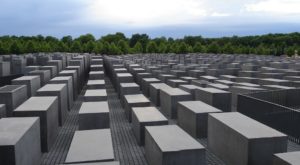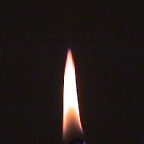
Monday evening, local synagogues gathered to jointly commemorate Yom HaShoah. There was power in our being together. This moving event included an insightful author, powerful readings, and a beautiful choir performing stirring and poignant music. I could not help but notice three things that were missing. There weren’t any young people; although there were four congregations gathered, the sanctuary was barely full; and the program was very particular, focused on the Holocaust as a Jewish event without broader implications.
Were it not for the choir, there was barely a handful of young people (under 55, let alone kids) in the audience. The meaning of this seminal event of the Jewish people cannot be lost when first generation witnesses and their children die. How do we keep the message of remembrance alive and relevant?
With four congregations gathered, the sanctuary should have been filled to overflowing. The choir took a substantial portion of the sanctuary space. Judging by attendance, the Holocaust is becoming a distant detached part of our past. The March of the Living has become increasingly popular, but this is a minuscule percentage of the Jewish people actively remembering every year. We are challenged to find ways to connect to the world that is disconnecting from the memory of the Shoah. Why is it so easy to forget and what does that say about us as a community of caring people?
The Holocaust is an event unique to the Jewish people. But genocide is not. The particular experience of the Jews needs to become a universal cry to humankind for humanity. This explains perhaps why survivors speak to all children everywhere sharing their stories, not just with Jewish children at Jewish schools. Part of the Shoah’s power is that it happened in a time and place where it seemed unimaginable to many, and it was permitted because of silence and complicity in the atrocity. It happened to the Armenians, it happened to others, and it is happening now even as I write these words.
Do we have the moral courage to speak out and act, or will we find a rationalization to ignore the carnage that does not directly affect us? It is the great question for the civilized world and the great teaching moment of the Shoah. Will we learn and effect change from our experience?



